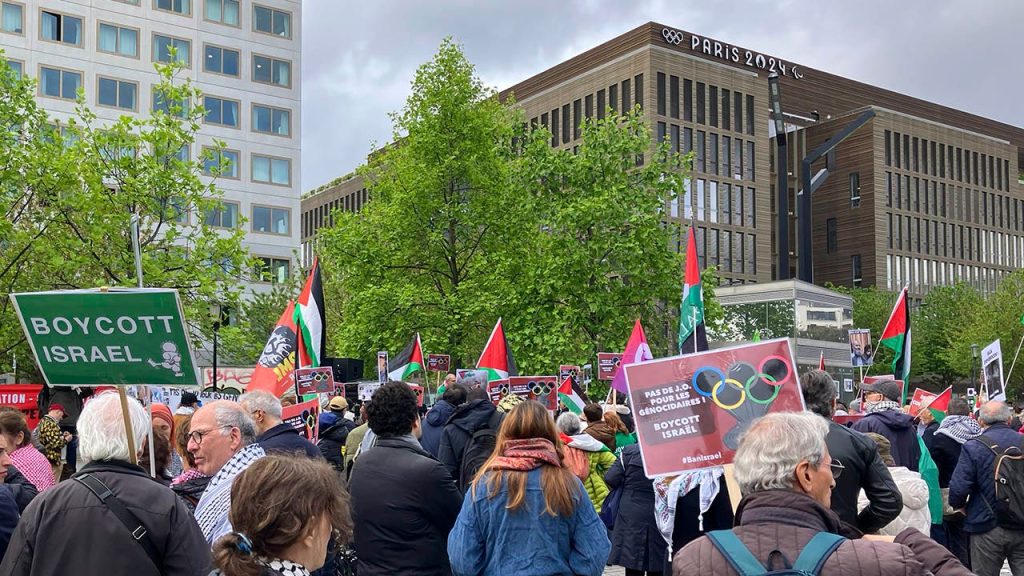About 300 protesters gathered outside the Paris Organizing Committee for the Olympic and Paralympic Games offices, demanding strict limits on Israel’s participation in the upcoming Olympics. Many protesters had Palestinian flags and cited the ongoing war in Gaza as they called for Israel’s exclusion from the Games. They argued that, like Russian athletes who will compete under a neutral flag due to political reasons, Israelis should also face similar restrictions from the International Olympic Committee. French President Emmanuel Macron defended Israel’s participation, stating that the country was responding to a terrorist attack in Gaza.
Nicolas Shahshahani, one of the protesters, criticized the IOC for allowing Russian and Belorussian athletes to compete in the Olympics following the invasion of Ukraine, while not imposing similar restrictions on Israeli athletes. The protesters were inspired by Gaza solidarity encampments at U.S. campuses and aimed to draw attention to Israel’s actions in Gaza. The protests came days after anti-Israel activists attempted to occupy campus buildings at two prestigious universities in the Paris region, showing a growing movement against Israel’s participation in international sporting events. Despite the criticism, the Olympic Games in Paris are set to begin on July 26, with the Paralympics following on Aug. 28 and ending on Sept. 8.
The protests highlight a contentious issue surrounding Israel’s participation in the Olympics, with many calling for strict limits or a complete ban on their involvement. The comparison to the restrictions placed on Russian athletes due to political reasons further fuels the debate on fair and equal treatment for all countries involved. French President Macron’s defense of Israel’s participation shows a divide in opinions on the matter, with some arguing that Israel’s actions in Gaza do not warrant exclusion from the Games. The protests and clashes with pro-Israel groups reflect a wider global conversation about the intersection of politics, human rights, and international sporting events.
The involvement of U.S. athletes in the conversation, as shown by a letter sent to America’s drug czar regarding Chinese doping, adds another layer of complexity to the situation. The global implications of such protests and demands for restrictions on Israel’s participation in the Olympics show the interconnectedness of politics and sports on the world stage. As the Games in Paris draw closer, the debates and protests surrounding Israel’s involvement are likely to continue, raising important questions about the role of sports in addressing political conflicts and human rights issues on an international scale.
With the Olympic Games approaching, the protests outside the Paris Organizing Committee’s offices serve as a reminder of the complex political dynamics at play in the world of international sports. The demands for restrictions on Israel’s participation highlight the ongoing tensions in the Middle East and the stance taken by various countries and organizations regarding these issues. As the Games draw near, the spotlight on Israel’s involvement and the actions of other participating countries will continue to be a topic of discussion and debate, reflecting the broader challenges of balancing sports, politics, and human rights on a global platform.


